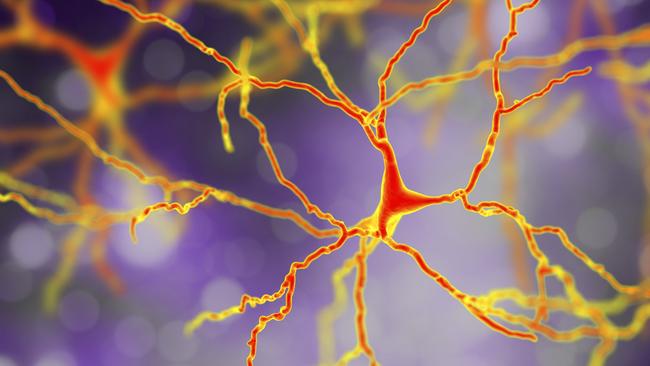Royal Melbourne Hospital could ‘transform’ MS treatment, offer hope to patients with few options
A groundbreaking Melbourne study is offering new hope for patients with a rare, aggressive and treatment resistant form of multiple sclerosis.

News
Don't miss out on the headlines from News. Followed categories will be added to My News.
A groundbreaking Melbourne study could “transform” treatment for a rare, aggressive and difficult-to-treat multiple sclerosis that fails to respond to other therapies.
The Royal Melbourne Hospital research, published in JAMA Neurology, found a stem cell therapy was effective for patients with treatment-resistant MS, offering hope to those with few options.
An autologous haematopoietic stem cell transplant involves intensive chemotherapy to “reset” a patient’s immune system, followed by a stem cell transplant.
Study lead, RMH Neuroimmunology Centre director Tomas Kalincik said they found AHSCT “reduced the frequency of relapses” and improved disability outcomes.
“These findings have the potential to transform the way we approach the treatment of relapsing MS that is otherwise difficult to control,” he said.
About 33,000 Australians have MS, an incurable neurological condition where the immune system mistakenly attacks important material that protects our nerves.
But Neurology Professor Kalincik, who also works at Melbourne University, said less than 0.2 per cent have a “highly active, relapsing” MS, making it more difficult to hold clinical trials to develop new treatments.
This observational study involved more than 4900 patients over up to five years, comparing the outcomes of three conventional medications with 167 AHSCT patients.
Prof Kalincik said they only “resort” to the riskier AHSCT for patients after other therapies are unsuccessful, as about 1 per cent of patients die during the chemotherapy phase.
“It is a significant risk,” he said.
He said they believe conventional medications may fail for some patients because their inflammation – which the drugs are supposed to treat – is protected by the blood-brain barrier.
He said this barrier could be likened to “a wall with tiny holes”.
“We’re not very good at getting our drugs behind that wall,” he said.
But the study, published earlier this year, found AHSCT not only worked for these patients, it provided “considerably superior” improvements compared to one drug; “marginally superior” to a second and similar results to a third.
He said for patients with no other options, this study allowed them to make an informed decision and gave them “an idea about how much their situation is likely to improve”.
“We were able to highlight the importance of personalised treatment approaches and offer hope to those with highly active, treatment-resistant MS,” he said.
He said he also hoped the study helped patients tempted by overseas, commercially-motivated clinics that prescribe treatments deemed too risky by their Australian doctor.
“Hopefully this … will help them understand why they’ve been given certain answers by the clinicians,” he said.
He said the next stage for AHSCT research was randomised clinical trials, with results from four international studies currently underway due in a few years.
“Until that time, we have this information from the study that we have completed to guide in the clinical decisions,” he said.




